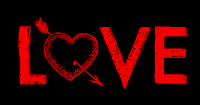This week, Tim Drake/Robin was confirmed as bisexual in an issue of Batman: Urban Legends. The move was widely praised by most, however, some fans have been more critical. I thought I would spend some time discussing why this matters so much to some fans and why it really shouldn't for others. Much of the issue has to do with the ongoing conflict between "curative" and "transformative" fandoms. These two categories were first described by an individual known only as lordbyronic in a 2015 reddit post and, while both contain some broad generalizations they are useful for discussing certain attitudes among fans. In short, transformative fans seek to make their favorite fictional worlds more inclusive and push for more characters from underrepresented groups. Curative fans are the historians. And, while they are not inherently opposed to more diversity and inclusiveness, they are primarily concerned with preserving what has come before and, generally speaking, are opposed to changing previously established characters or stories.
So, why does Tim Drake's coming out matter for the transformative fan? As I mentioned before, those on the curative side aren't opposed to diversity and so they might argue that, rather than 'changing' Tim, DC should have put more effort into promoting characters who had already been established as LGBTQ+. They might argue: "Instead of making Robin gay, why not focus on Apollo and Midnighter?" The problem with this? Apollo and Midnighter aren't ROBIN. Even if he isn't the original, Tim Drake is still a major, longtime supporting character in what is, arguably, DC's biggest franchise (Batman). This alone gives him far more visibility than characters like Apollo and Midnighter who are probably unknown to many casual fans. Another problem with characters like Apollo and Midnighter, and even Batwoman/Kate Kane, who are introduced as gay characters is that, unfortunately, it becomes a defining characteristic. It is part of their description. Try explaining Apollo and Midnighter to someone without basically saying, "they're Superman and Batman analogues only they are also a gay couple." Even a character as well done and nuanced as Kate Kane will generally have their sexuality mentioned sooner rather than later in describing them. In Kate's case, her sexuality plays a crucial role in her origin story. As you can see, having a character who is both well known and established has advantages. They not only have greater visibility but, because they are already established, their sexuality becomes part of the character rather than a defining characteristic.
And why shouldn't this matter this matter to the curative fan? First off, I'm a big fan of Tim Drake. He's my favorite Robin and the one that held the mantle when I began actively reading comics as a kid. He's often referred to as "the smart one" amongst the Robins. I like to think of Batman's various sidekicks over the years as being reflections of certain aspects of the Dark Knight himself. If the original Robin, Dick Grayson, is Batman's kindness and Jason Todd, Tim's immediate predecessor, is his anger, then Tim is his brains. After all, his origin story is that he was smart enough to deduce the identities of Batman and Robin. It is often suggested in the comics that Tim will one day (and may even already be) a better detective than Batman. While he isn't the natural leader that Dick Grayson is, he has shown himself to be a brilliant tactician and fully capable of taking a leadership role when necessary. Also, as he is (at least not initially) orphaned by criminals, he tends to be a bit more well adjusted than his predecessors. These are the traits that truly define the character..... and none of them are in any way contingent on his sexuality.
Unlike Dick Grayson, who has long history as a bit of a "Ladies Man" or womanizer (something he was recently called out for), Tim's sexual orientation is not an intrinsic part of his character. Many disgruntled fans are asking, "why did they make Robin bi?" when the better question would be, "Is there any reason he can't be?" Yes, his depicted romances up until this point have always been with women but is there any reason he might not also be attracted to men? Since he is bisexual, none of this undoes previously established stories. Tim can still have dated Stephanie Brown (Spoiler), it's just that we now know he may have also been checking out Connor Kent (Superboy). So, nothing, in fact, has actually changed about the character, another dimension has simply been added. It's like finding out an old friend you've known for years has a hobby or interest that you didn't know about before; they're still the same person, you just know a little more about them. If you feel you are no longer able to "identify" with the character because he is no longer the same sexuality as you, that probably says a lot more about you than it does the character (also, do you think LGBTQ+ fans only 'relate' to LGBTQ+ characters? Can you imagine not being able to 'relate' to 99% of the characters in comics? Do you honestly think they are like, "Peter Parker is cool and all but, since he's straight, I can't relate to him as a character").
This isn't the first time DC or even the Batman franchise, has revealed characters to be bisexual. The on-again-off again relationship of Harley Quinn and Poison Ivy has been an established part of the characters for over twenty years. Both characters had previously been depicted in heterosexual relationships. Hell, Ivy's whole thing from her inception was as a seductress of men. So, remember, today's retcon is tomorrow's canon. It is also worth noting that, many of those grumbling about Tim Drake (largely straight males), were far more accepting of the Harley/Ivy reveal. So, maybe they're only able to accept changes in characters when the results are appealing to their personal fantasies.






























